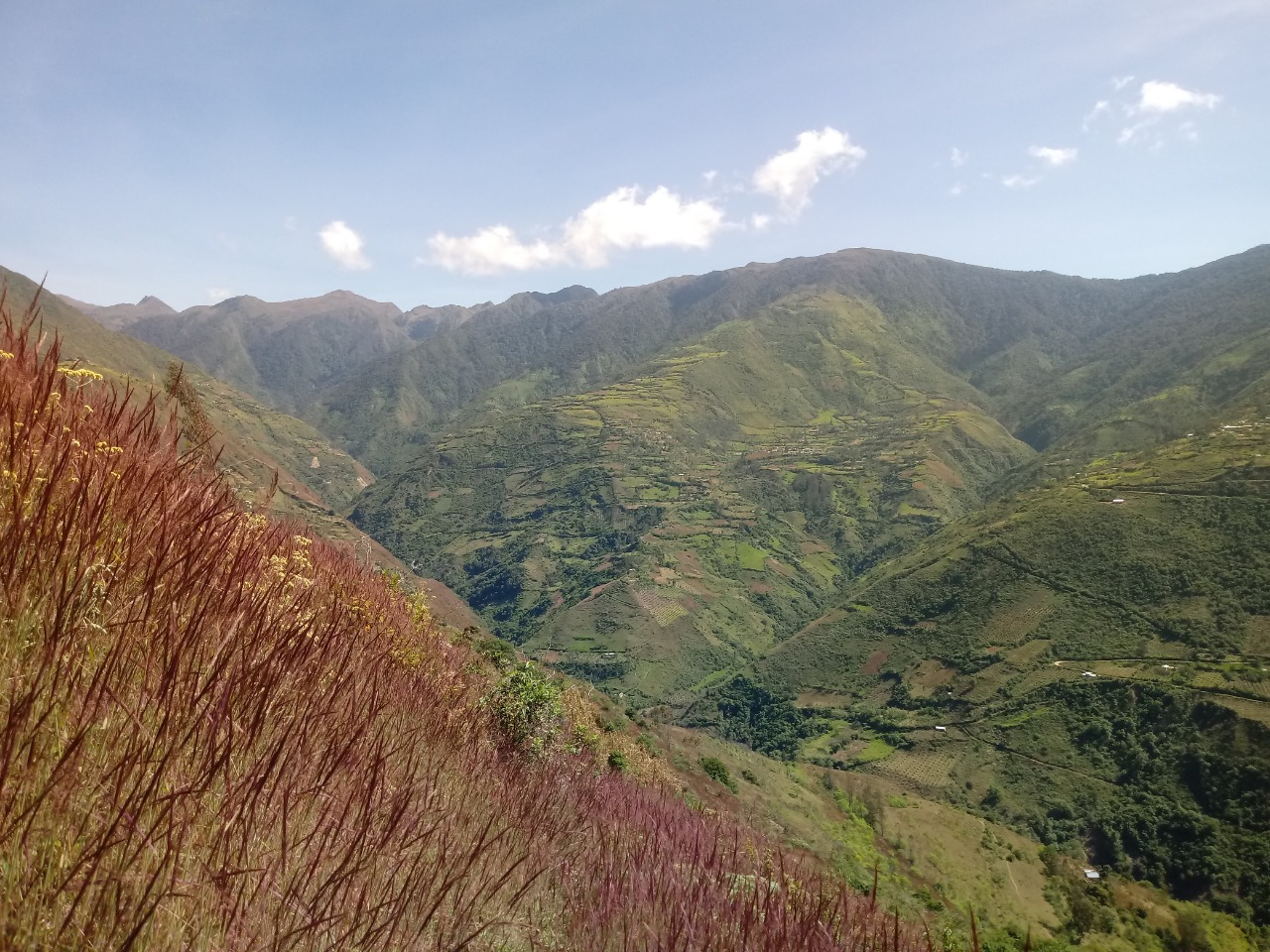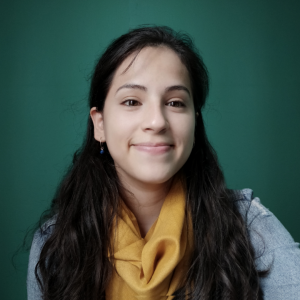My relationship to research is my relationship to gender studies. My relationship to gender studies is my deep and chaotic link to Sociology and San Marcos. My link to Sociology and San Marcos is my search for tools to work by and for people. Working by and for the people is my motivation to study Communication for Development and studying Communication for Development is my return to PUCP.
The first research I did was in the first cycle, in the Sociology course in General Studies Letters, almost 10 years ago. This experience marked me. It was the first time I heard about gender studies, it was the moment I made the decision to study Sociology. Hartmut Rosa says that when we resonate with people, things, spaces, tasks or ideas a transformative assimilation takes place, “an assimilation in which both poles of the relationship transform each other” (2019, p.26). That’s how it happened that time, that first research I did on street sexual harassment changed me, it was the door to know that what I took for granted until I was 17 years old did not have to be so, to recognize that the violence I experienced responded to something structural and that I was not the only one, that other women and dissidents constantly lived these situations and that they fought and organized to confront them. The research was not only a process to build public knowledge, it was a space to re-know myself.
We approach research from who we are, not only with our knowledge, titles and academic degrees, but also with our subjectivities, our life stories, with concerns that respond to what moves us. Have you ever thought why we choose to work on certain topics and not others? Well, what we research and how we do it also speaks about us. In my case, since that first research, in other university courses, consciously or not, I ended up working on gender issues (sexism in the press, transformation of Shipibo-Konibo women’s relationships, feminist performance and artivism, censorship of female nudity in social networks, sex-affective relationships in heterosexual youth, life experiences of domestic workers, etc.). ) In this opportunity, together with Pía, we decided to revisit a topic that we had researched in 2019: The transfeminist party as a political space of resistance for young feminists and LGBTIQ+ in Metropolitan Lima.
Sometimes I like to think that research is a living entity, because it can take you to incredible places that greatly exceed the initial approach and require adaptation. March was a complex month, because although we knew empirically and theoretically the topic we were going to investigate, we did not imagine the magnitude with which the pandemic transformed the party space. There were other participants, different locations and different dynamics in the space. At that moment, it was important to come clean and accept that the issue no longer resonated with us. It was then that we decided to change. I am grateful for the Lab’s support and help in this process.
At the moment of elaborating a research, something that anxiously crosses my mind is our positioning as researchers and its ethical implications. At least in qualitative research (like the one we are doing), whether through interviews, focus groups, participant observation or some other tool, we are inserting and sharing with other people. What kind of relationships do we establish with them? What are our motivations and how do they dialogue with the motivations and needs of these people? What does our research bring to them?
Regarding our work, we are now in search of a new topic that resonates with us and with which we can share, learn and build mutually. For some years now, I have been participating in feminist activism spaces or close to it. The other day, at a meeting of one of these organizations, we began to talk about the right to decide and a colleague who is a mother mentioned her feelings about it. That intervention made me think about the need to make visible and dialogue with the different experiences of motherhood within feminist activism.
Thinking research by and for people implies looking at research as a process of mutual learning and discovery. It involves reevaluating other types of knowledge, such as emotions and corporealities, and seeking tools to reach the experience of these realities. It also implies recognizing ourselves as situated and sentient subjects, who are not indifferent to the experiences of the people with whom we work. This is the research I am betting on.
I hope that the search for participatory and endogenous processes will transcend the discourse of the Communication for Development projects and will also be transferred to our research practices, with critical awareness. So that we can subvert the asymmetric relationships in the creation of knowledge and transform them into reciprocal processes of transformative assimilation. Because research methodology is still an open field for reflection, dialogue and construction.
Rosa, H. (2019). Resonancia. Una sociología de la relación con el mundo. Katz Editores.





